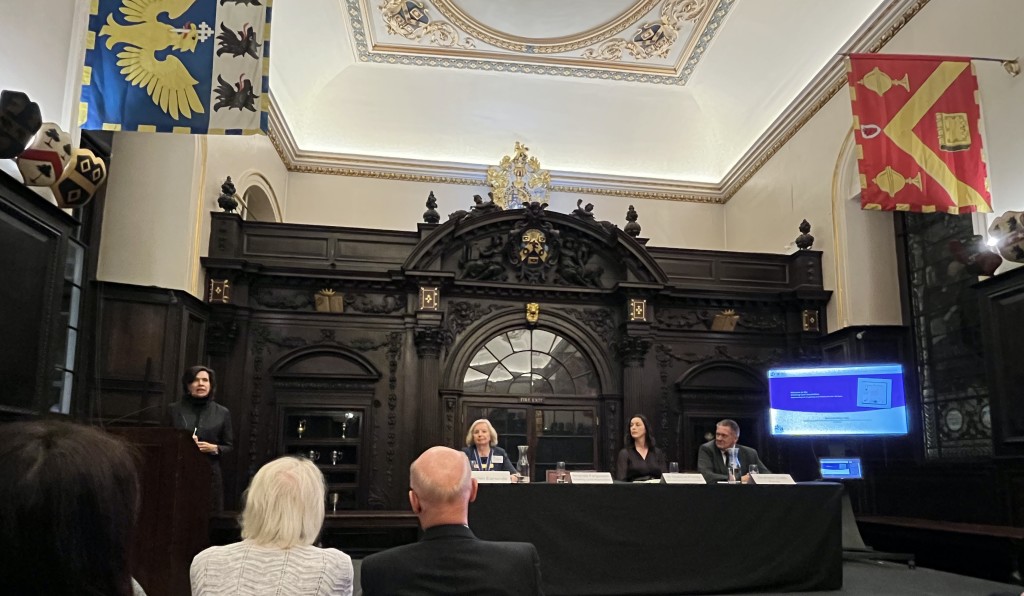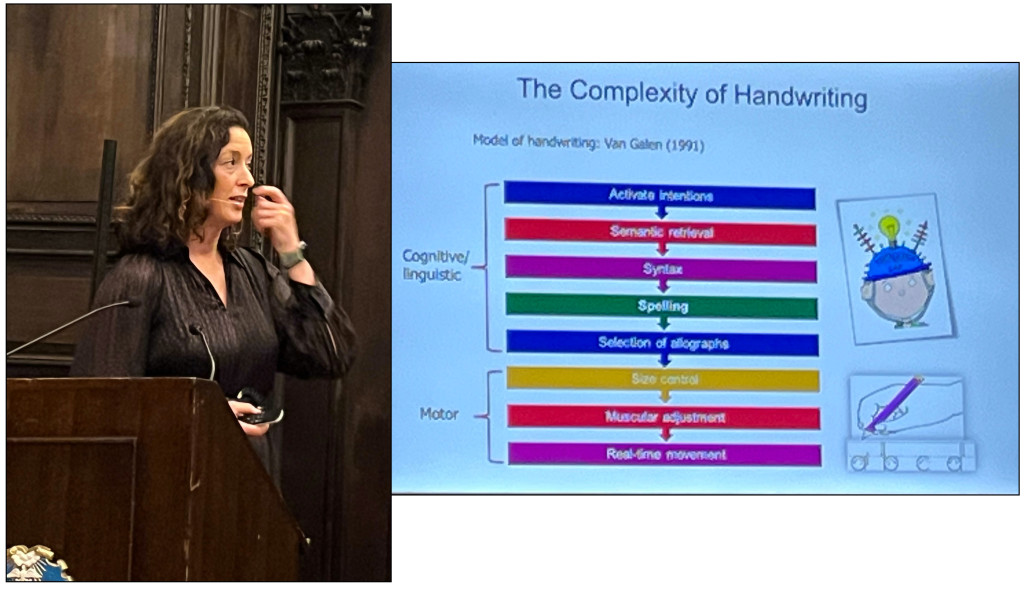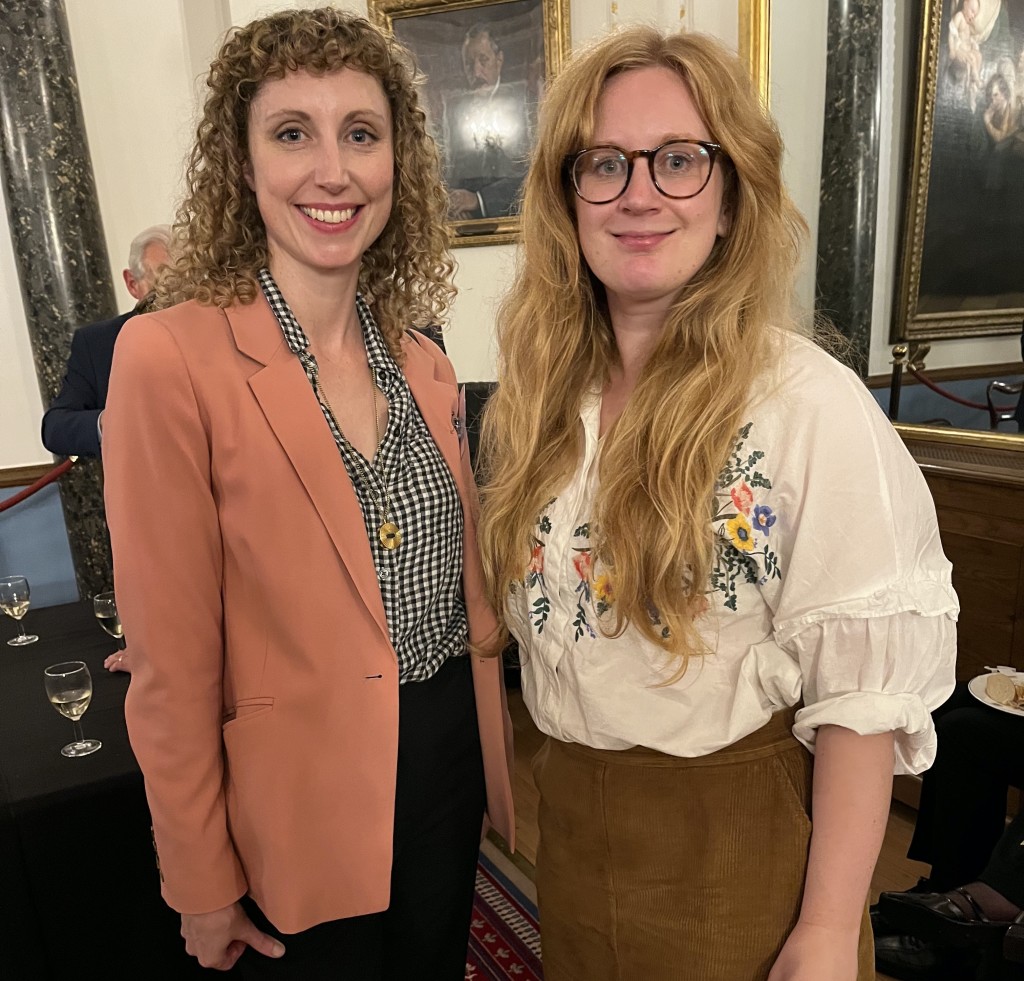Worldwide audience hears importance of personality, 7bn pen sales and increased connection
Artificial intelligence removing the emotion from greeting cards, 7billion pen sales, and the coordination difficulties stopping primary school children typing were just some of the facts that decided handwriting does still have a place in this digital world.
Beamed around the world from London’s Stationers’ Hall on Monday, 23 October, the well-attended event chaired by former stationery publisher Helen Esmonde saw GCA ceo Amanda Fergusson, Pentel’s sales director Graham Craik, and National Handwriting Association chair Dr Melissa Prunty present their respective cases for handwriting’s durability and importance, with questions from the audience adding even more pep to a very engaging event.

As participants across the UK, Europe, the US and Canada listened intently, both in the room and online, the Stationers’ past master decided: “We can conclude, at least for the moment, that handwriting is still relevant for the digital age – though there are changes and challenges and we must adapt while still championing the fundamental importance of handwriting.”

The event was the brainchild of London Stationery Show and Writing Matters campaign founder and stationery passionista Christopher Leonard-Morgan, a liveryman at the Stationers’ Company, and was sponsored by Manuscript Brands.
Covering the greeting card history, Amanda explained: “Rationing during WW2 resulted in the banning of cards so the GCA lobbied Lord Beaverbrook, minister of supply, on the grounds that the morale of the fighting forces, as well as that of the general public, would be negatively affected by the ban.
“Taking this on board, the government rescinded the ban, declaring ‘greeting cards are considered essential to the war effort’, and the GCA was given the responsibility of allocating the paper until rationing restrictions were lifted.

“Fast forward to today and we see the explosion of social media – however, a message on social media does not create the same powerful connection as seeing a loved one’s handwriting.”
Mentioning the GCA’s Schools Project connecting pupils in Ghana and the UK, Thinking Of You Week, Festive Friday, and the #Cardmitment campaign, as well as the battle to keep stamp prices affordable, Amanda said 50% of cards are now hand-delivered because of the cost of postage, but it means people are also losing the art of addressing envelopes correctly.
She added: “A card is a small hand-written act of kindness. It creates a strong emotional connection between the person that has written it and the person that receives it.
“There is simply nothing like seeing a hand-written envelope on the doormat with a message from someone who’s thinking of you.”

Melissa, who is also divisional lead and reader in occupational therapy at London’s Brunel University, covered the educational side of the subject, explaining that typing, handwriting or texting are all ways of writing and tools for literacy.
She said children aged four to five have to concentrate on how to shape letters so can’t think about the content at the same time, plus they don’t yet have the fine motor skills to use both hands to type – that doesn’t kick in under around age 10.
Melissa confirmed that writing by hand “aids retention of information as it engages the brain”, but added there are moves afoot to allow all GCSE students to take their exams on laptops “which does level the playing field” as some students who are currently allowed to do so because they struggle with writing won’t use the computer because they feel it marks them as being different.

Commenting that he’s sold around 7bn pens in his 40-year working life Graham, who is also chairman of the Writing Instruments Association, added that last year people in the UK bought and used around 1.4bn pens, markers and pencils, worth £520million at retail, with the average Brit buying 20 pens a year.
“Office products are slowly declining,” he said, “but the arts and crafts side, creative side and colour side, is most definitely on the increase,” while calligraphy products are growing by 20% every year and in 2020 when lockdown hit, the company sold four years’ worth of colouring products in just three months.
Confirming that working from home has hastened the paperless office predicted by Microsoft in 1992 – although it’s taken a lot longer than the decade they expected – Graham said people still write on Post-It notes to stick on their computer and also take notes in meetings, and sales of chalk pens and paint markers have seen a 50% increase as they’re used for menu boards and shop signs, while 30% of Pentel’s pen sales are to greeting card retailers.

And he added: “Handwriting will be a declining skill if we do nothing,” but admitted his wife and the women in the office still expect handwritten greeting cards “and I would never send a Valentine’s text”!
Graham concluded: “Education is the future, we need to encourage handwriting as a skill as there are a lot of uses for handwriting in the adult world,” and Pentel is already involved with university fresher weeks, giving away pens and encouraging students to write letters home to their parents.
It was Helen who brought up the subject of AR robots writing cards for people based on their personal handwriting, to which Amanda responded: “It’s not the same, when we write cards it contains our personality, a robot can’t have that intimacy.”





















